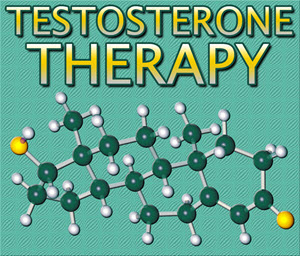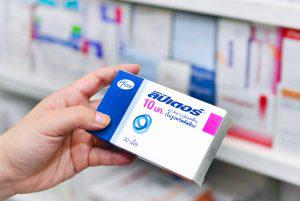 Statins May Lower Testosterone and Libido
Statins May Lower Testosterone and Libido
There is evidence that statin-type cholesterol-lowering drugs lower testosterone levels (BMC Medicine, Feb. 28, 2013).
A side effect of medications like pitavastatin (Livalo), atorvastatin (Lipitor), and simvastatin (Zocor) is that lower testosterone could have an impact on libido and sexual performance (Journal of Sexual Medicine, April 2010).
Video Link: https://vimeo.com/290598677
Video Download: Click Here To Download Video
Video Stream: Click Here To Stream Video
Video Link: https://vimeo.com/290599468
Video Download: Click Here To Download Video
Video Stream: Click Here To Stream Video
The Food and Drug Administration (FDA) recently issued a warning against the use of testosterone unless men have hypogonadism, a condition that lowers this hormone.
The agency is concerned that prescribed testosterone may increase the risk of heart attacks and strokes, which is what statins are designed to prevent.
The use of statins is usually done as secondary prevention for cardiovascular diseases.
Testosterone, a male sex hormone produced by the testes, performs the function of the development of male sexual characteristics and makes men MEN.
A deep voice and a beard, increased muscle tone and bone mass are examples of such features.
Aging is the main culprit that brings on a precipitous drop of the hormone.
When the production of it drastically decreases or ceases, a wide array of symptoms and complications occur.
Low testosterone is diagnosed if the levels fall below 300 nanograms per deciliter (ng/dL).
The effects of low levels of testosterone are not to be ignored. Here are a few of them:
- A decrease in the volume of seminal fluid (Semen): Seminal fluid aids in sperm production, which is directly influenced by the levels of testosterone. Therefore, the more testosterone a man has, the more semen he produces, and thus the men who have low levels of testosterone will provide a decreased volume of sperm.
- Low sex drive: In young men, low levels of testosterone may cause a drastic drop in their desire to have sex.
- Erectile dysfunction: Testosterone is responsible for a man’s sex drive and thus helps achieve an erection by stimulating receptors in the brain. Low levels of the hormone lead to issues like erectile dysfunction, along with a parade of horrors: obesity, diabetes, and atherosclerosis.
- Hair Loss: In men with deficient levels of testosterone, loss of body and facial hair is a common phenomenon.
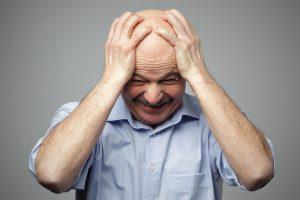
- A Decrease in Bone Mass: Osteoporosis is often considered a woman's disease.
- However, men whose levels of testosterone are low seem to experience bone loss because testosterone plays a vital role in the production and strengthening of the bones.
- Mood Changes: Drops in testosterone levels alters the mood and mental capacity in men, making them depressed, irritable, or lacking the ability to concentrate.
- Weight gain. Teenagers can usually eat almost anything they want and not gain weight. Not so for aging men losing their testosterone.
- Fatigue. No strength, feeling terrible, no ability to exercise...all result in increased fatigue. It is a vicious cycle. This fatigue results from a decreased production of red blood cells which reduces the amount of oxygen available for the body to use.
- Weakened, soft, shrunken muscles. And this condition gets worse as men get older. Testosterone levels decline sharply after age 70 in many senior men affecting both bone and muscle strength. One significant concern for senior men is their ability to maintain independent living.
- Hot flashes and night sweats.
You might be able to overcome the statin side effects of fatigue, low libido, and insomnia by using different approaches to lowering cholesterol, such as adopting healthier eating habits and beginning an exercise routine.
Surprise! Low T is Not Just an Issue for Seniors
Decreased testosterone or “Low T,” as it is sometimes called, is more common than most people realize.
Plenty of younger men (even in their 30s) develop  low testosterone.
low testosterone.
The causes vary, but there are three common reasons this happens:
(1) Some undergo testicular failure, meaning their testicles stop producing testosterone for no apparent reason.
(2) In some cases, testicular failure results from the long-term use or abuse of narcotics.
(3) Others developed testicular failure from the excessive misuse of testosterone or testosterone-like products when they were in their teens or early 20s.
So, Should You Discuss This Topic with Your Physician?
Perhaps you should.
The critical point here is that if you have a chronic disease, you are likely fatigued, and you won’t know if low-T is contributing unless you have your testosterone levels checked by a simple blood test.
If a real testosterone deficiency is established, before deciding whether to undergo testosterone replacement therapy, it is imperative to have a good understanding of the pros and cons.
Communication between the doctor and patient, as well as respect for this medication, is vital to the patient’s success.
And that means understanding the pros and cons of Testosterone Replacement Therapy (TRT)
There are Two Sides to Testosterone Replacement Therapy
There is an ancient cliché: “there are two sides to every story,” and that applies to testosterone replacement therapy as well.
On the bright side, the blast of energy, strength, and increased libido will make you feel years, even decades, younger.
But Not So Fast!
The cons include the rare possibility of male breast enlargement (gynecomastia, or “bitch tits”), acne, increased prostate size, abnormal liver functions, 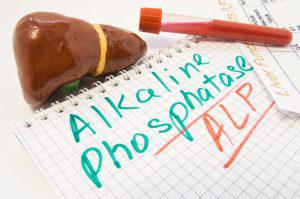 thickening of the blood, which may result in clot risk, which increases the odds of such afflictions as heart attack, stroke, and sterilization (inability to have children).
thickening of the blood, which may result in clot risk, which increases the odds of such afflictions as heart attack, stroke, and sterilization (inability to have children).
However, the link between testosterone and prostate cancer has been debunked.
The potential cons are a concern, for sure.
However, clinical trials have reported that the incidence of side effects is infrequent if monitored carefully.
The key is to make sure your doctor gives you a blood test every 2-3 months.
The non-fasting blood-work consists of hemoglobin and hematocrit, liver function tests, PSA, and total testosterone.
Clear Physician-Patient Honest Communication is an Absolute Must
Open, honest communication between the doctor and patient is a must!
This might be stereotypical, but three things that men often don't talk about are their feelings, discussing their sexual health problems, and seeing a doctor.
 Perhaps it’s no surprise, then, to see a new survey revealing that many men have trouble talking about a sensitive health issue like loss of libido.
Perhaps it’s no surprise, then, to see a new survey revealing that many men have trouble talking about a sensitive health issue like loss of libido.
A further 23% even said they’d rather have a root canal.
According to Embarrassing Bodies expert Dr. Christian Jessen: “Men can be reluctant to talk about sensitive issues”...and this applies in particular to low testosterone (“Low-T”).
This occurs when testosterone drops to an unusually low level or stops being produced altogether, resulting in symptoms that resemble premature aging.
Why Does Testosterone Matter?
It’s required by all men for a healthy life, physically and psychologically.
It also stimulates sperm production and enhances sex drive, and testosterone is also crucial for the development of muscle and bone mass.
So who suffers from Low-T?
“Testosterone deficiency syndrome affects 8% of men aged between 50 and 79 years old,” said Jessen. That’s over 700,000 men. But many of these men mistake the symptoms as a side effect of getting old.
“What a lot of people don’t realize is that it’s not just a part of the aging process, and it can be treated... so visiting your physician is critical.”
Men Over 45 are More at Risk
Jessen adds that men who are over the age of 45 with diabetes or metabolic syndrome have higher odds of suffering from Low-T, with other risk factors including obesity and excessive alcohol consumption.
What are the symptoms?
Loss of sex drive and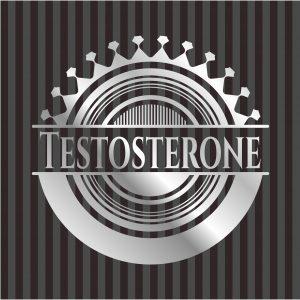 loss of morning erections.
loss of morning erections.
Low testosterone is a severe health issue.
How is low testosterone diagnosed?
A hormone medical specialist will look at a patient’s history before any clinical examination, a questionnaire will be given, and blood tests are taken to measure testosterone levels.
And how will treatment progress?
There are many treatment options available, mainly including changes to diet and lifestyle (such as losing weight, stop smoking or drinking less, and eating or drinking Soy-based products).
Testosterone HRT options are also available.
Dangers of taking testosterone supplements
Testosterone supplements are at times marketed behind the idea that the treatment is effortless, safe, and always useful.
Regrettably, however, this is not always the case. And few men know the dangers of taking testosterone.
Dr. Philip Werthman says when a man takes testosterone supplements, his brain thinks the body is making the hormone, so natural production shuts down.
"After you start, this could potentially be a lifelong therapy," he said. Patients can be left with side effects like lack of energy, loss of sex drive, and trouble focusing.
Patients can be left with side effects like lack of energy, loss of sex drive, and trouble focusing.
"Imagine how badly you felt when your testosterone was low that you wanted to go on therapy, now imagine when your testosterone's almost nonexistent," said Dr. Werthman.
Taking testosterone can also increase the risk of infertility, prostate cancer, liver problems, blood clots, heart attack, and stroke.
"Brian," who doesn't want his real name used, took testosterone injections for two years.
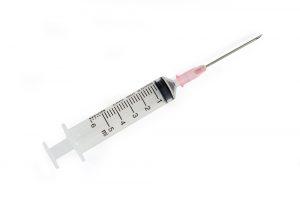 "He said I think you'll get some benefits. It's worthwhile. You should try it." Brian went off the hormone when he found out it was making him infertile. He also lost his sex drive and suffered other side effects.
"He said I think you'll get some benefits. It's worthwhile. You should try it." Brian went off the hormone when he found out it was making him infertile. He also lost his sex drive and suffered other side effects.
"I became fatigued all the time. I couldn't focus. I would forget things," said Brian.
He is currently suing the doctor and wants others to know the dangers.
"If you get off of it, you may never be normal again, which is what seems to have happened to me," Brian said.
Testosterone comes as a pill, patch, gel, and injection.
While there are cases where testosterone can help men who genuinely need it, Dr. Werthman believes it's often over-prescribed. A recent study found 25% of men who were given testosterone never even had their levels checked.
Dr. Werthman said over-the-counter supplements could be just as damaging as those provided in a clinic.
The final word on this topic is this: research the subject entirely, think about your reasons for considering testosterone replacement therapy, then discuss it with your physician.
If you begin a TRT treatment program, make sure that you are carefully monitored and supervised.
Better still, contact our clinic. Hormone replacement therapy is our specialty. We will design a program tailor-made just for you. Call us for a no-obligation discussion about the benefits of testosterone replacement therapy.
Contact Us Today For A Free Consultation

- Common Chemicals Found in Plastic May Lower Testosterone Levels [Last Updated On: January 18th, 2024] [Originally Added On: September 29th, 2020]
- There is No “Testosterone Controversy” [Last Updated On: June 30th, 2024] [Originally Added On: September 30th, 2020]
- Is Your Leadership Ability Determined by Your Testosterone and Cortisol Levels? [Last Updated On: January 31st, 2024] [Originally Added On: October 1st, 2020]
- Recent Study Confirms: Testosterone DOES NOT Increase Heart Attack Risk! [Last Updated On: February 10th, 2024] [Originally Added On: October 5th, 2020]
- What You Need to Know About Testosterone Esters [Last Updated On: March 20th, 2024] [Originally Added On: October 7th, 2020]
- Research Makes a Case for Testosterone Replacement Therapy (TRT) [Last Updated On: December 21st, 2023] [Originally Added On: October 8th, 2020]
- Testosterone: How Much Do You Really Know About This Potent Hormone? [Last Updated On: July 16th, 2024] [Originally Added On: October 9th, 2020]
- Possible Health Benefits of Testosterone HRT (TRT) [Last Updated On: December 25th, 2023] [Originally Added On: November 20th, 2020]
- Diabetic Men with Low Testosterone Run Higher Risk of Developing Atherosclerosis [Last Updated On: February 9th, 2024] [Originally Added On: November 22nd, 2020]
- Things You Might Not Have Known About Testosterone [Last Updated On: January 26th, 2024] [Originally Added On: November 23rd, 2020]
- Testosterone Propionate [Last Updated On: February 14th, 2022] [Originally Added On: January 17th, 2022]
Word Count: 1717










